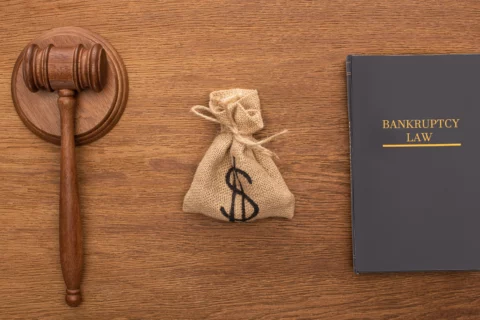Bankruptcy in Illinois
Bankruptcy is a proceeding that legally enables an insolvent debtor to obtain debt relief and have a fresh start. When you file for bankruptcy, you are given bankruptcy protection or automatic stay which protects you from property or car repossession, foreclosure, wage garnishment, harassing debt collectors, and other acts of harassment by collectors or collection agencies until your debts are sorted out by the bankruptcy court. An Aurora bankruptcy attorney can be of great help to you if you are considering bankruptcy.
Types of Bankruptcy in Illinois
There are multiple kinds of bankruptcies that you can avail of if you qualify for it. The most common bankruptcy petition used are:
- Filing Chapter 7 Bankruptcy – Chapter 7 is a liquidation bankruptcy where a bankruptcy trustee will be issued to handle the nonexempt properties of the debtor. The trustee will then sell or liquidate your assets in which the proceeds will be used to pay back what you owe to the creditors. Liquidating bankruptcy is often used by people who want to discharge or wipe out their debts fast since most of their properties will be taken and liquidated which in turn results in the lender being paid faster. To qualify for Chapter 7, you must first pass the means test where it will determine whether your income is below the required median income in Illinois. Afterward, you need to take credit counseling and complete the necessary paperwork before you can file a bankruptcy petition.
- Filing Chapter 13 Bankruptcy – Chapter 13 is a debt-repayment or reorganization plan where you will reorganize your debts to pay your creditors for 3 to 5 years. The benefit of this chapter is that you keep most of your belongings unlike in Chapter 7. To qualify for this chapter, you need to have a stable source of income because you will be making monthly payments to your creditor.
Debts that you can Discharge in your Bankruptcy Filing
 According to Bankruptcy Laws in Illinois, not all kinds of debt can be eliminated. For your debts to be discharged or wiped out, you need to include those debts in your petition for bankruptcy or else, they will not obtain a bankruptcy discharge. Some of the debts you can wipe out are:
According to Bankruptcy Laws in Illinois, not all kinds of debt can be eliminated. For your debts to be discharged or wiped out, you need to include those debts in your petition for bankruptcy or else, they will not obtain a bankruptcy discharge. Some of the debts you can wipe out are:
While there are debts that you can fully erase, there are debts that are not dischargeable, and you need to pay off such as:
- Alimony
- Child support
- Tax debt
- Student loans
- Debts from a secured creditor
- Criminal fines and penalties
- Debts obtain through fraud, embezzlement, or theft.
Bankruptcy Advantages and Disadvantages in Illinois
The following advantages are possible if a bankruptcy is filed:
- Most of your debts will be dismissed (chapter 7)
- Most of your properties can be saved (chapter 13)
- You are protected from creditor harassment along with repossession and foreclosure.
- You can keep the exempt properties.
- You can prevent or restore utility services.
Here are the disadvantages that a petition in bankruptcy may bring:
- Your credit rating will be affected for up to 10 years.
- Getting a credit card can be more expensive or difficult.
- The unpaid property will have to be returned unless there is a modification of the loan in chapter 13.
- Chapter 7 discharge can only be availed every 8 years.
- You might have retained your property without being forced into bankruptcy.
Are you Considering Bankruptcy in Illinois?
According to the Bankruptcy Code, declaring bankruptcy does not require you to have a bankruptcy lawyer. However, hiring bankruptcy lawyers will be of great help to you since they know how the law works. Small mistakes starting from filing for bankruptcy can result in the dismissal of the case hence, having an experienced Aurora bankruptcy attorney beside you is highly recommended. We at Cutler & Associates will help you with your bankruptcy matters and help you achieve financial freedom. Call our bankruptcy law firm now for a free legal consultation.


